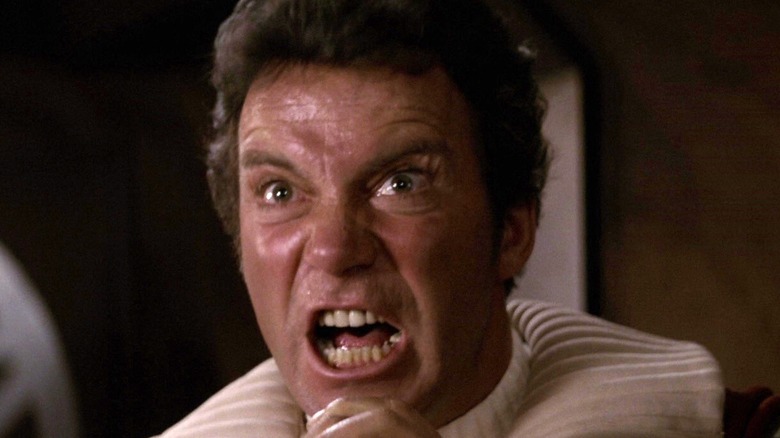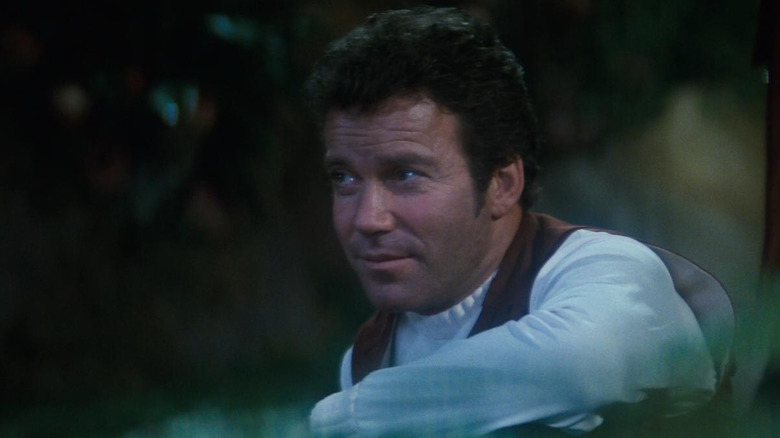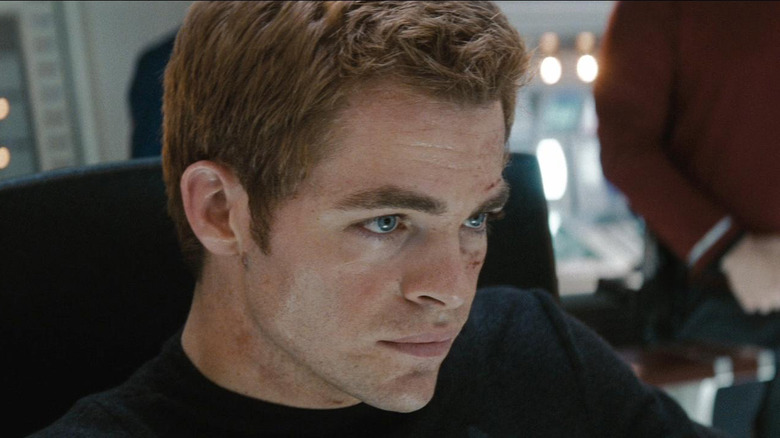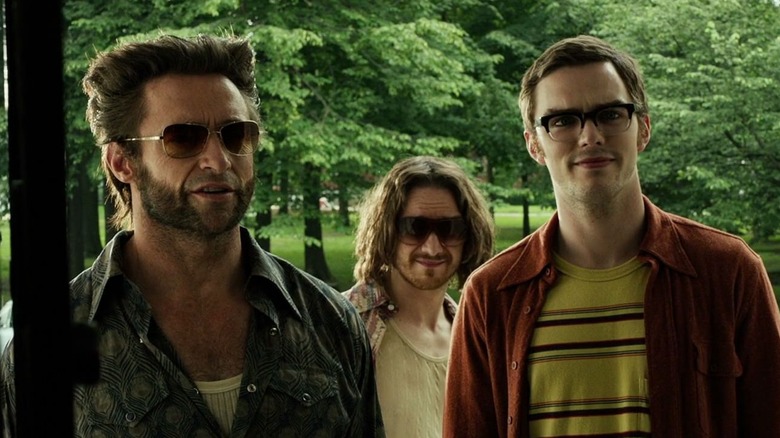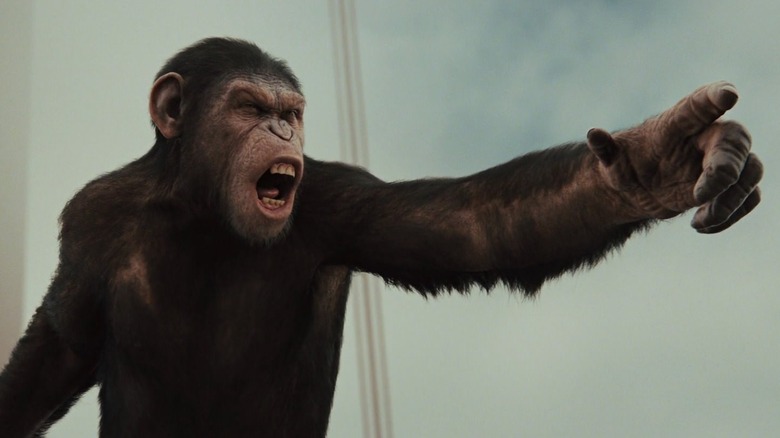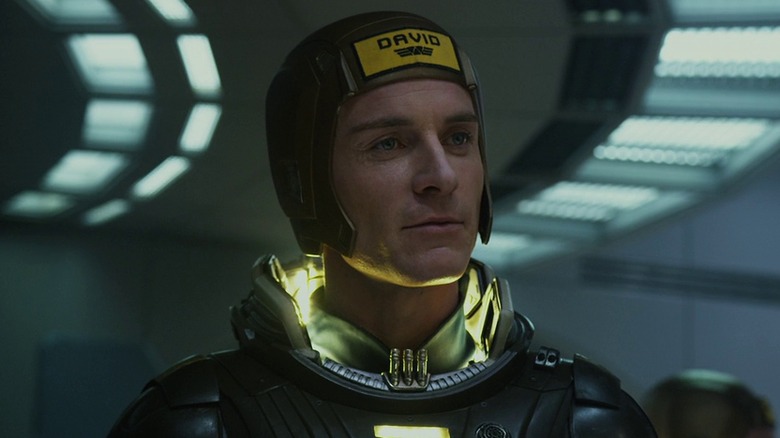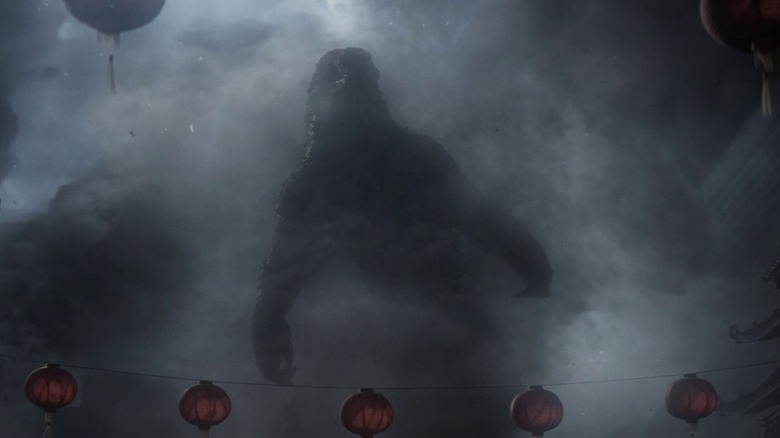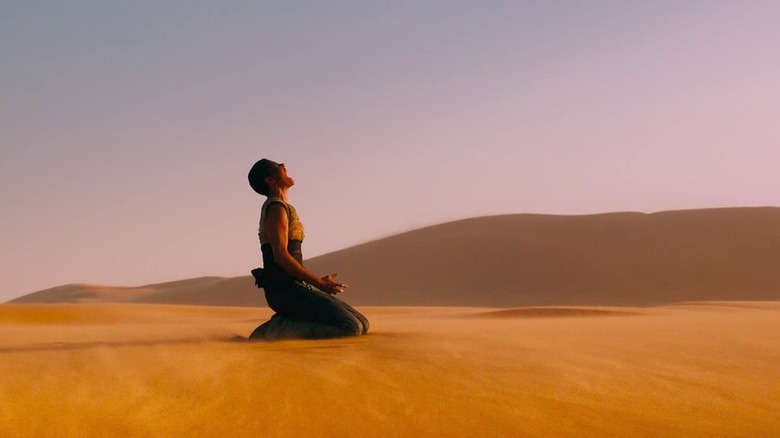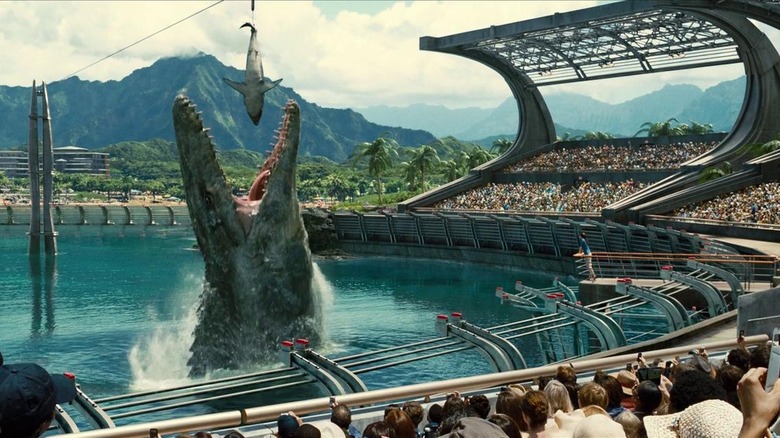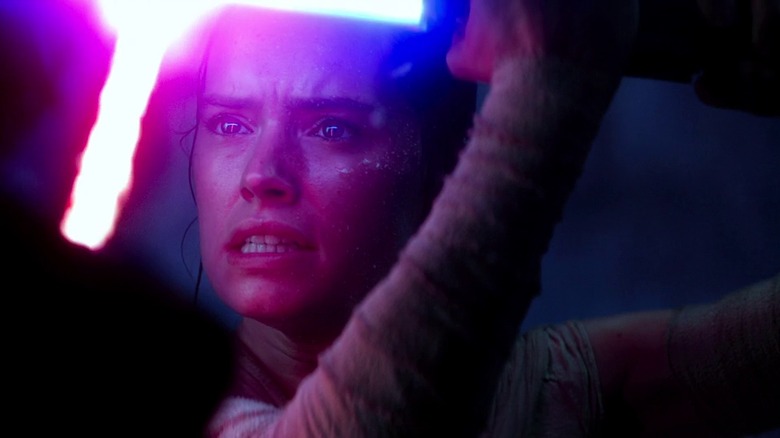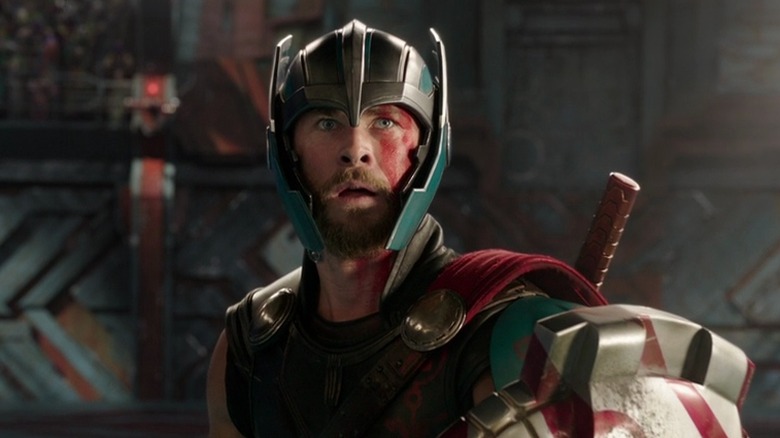Times Sci-Fi Movie Sequels Saved The Franchise
There was a time, not long ago, when Hollywood wasn't dominated by sequels. Throughout most of the 20th century, most hit movies were one-and-done affairs. On the rare occasion when a franchise was born, it usually wasn't built to last forever. Even in the realm of science fiction, long-running franchises were rare, and sequels hardly ever lived up to the original works. Series fell out of favor or even quit while they were ahead. Call us old-fashioned, but sometimes that was for the best — not every good movie needs a sequel, not every bad sequel needs a redeeming follow-up, and not every franchise needs a rebirth. It's okay to let things go.
That, however, has not been the popular mindset among today's movie studios. The pace of franchise revivals, either in the form of long-awaited sequels, prequels, reboots, or re-imaginings, picked up steadily throughout the 2010s and into the 2020s, particularly when it came to sci-fi. While some franchises haven't been "saved" by any measure despite multiple attempts ("Terminator" and "Predator" come to mind), some have been rescued from the brink after a brief stutter-step, or even exhumed after over a decade underground. In some cases, we're grateful that an idea, a character, or a creator has gotten a new lease on life. In others, we might have been just as happy if a series had been allowed to end on an "L." You'll find a little from either column in our list of sci-fi sequels (and prequels) that revitalized their brands.
The Wrath of Khan proved Star Trek could please a mass audience
Today, "Star Trek" is considered a "crown jewel" intellectual property, one of the most influential and long-running media franchises of all time. It's easy to forget that the original "Star Trek" television series was relegated to a nerdy niche and unceremoniously canceled after its third season in 1969. "Star Trek" gained cultural momentum in reruns during the 1970s, leading to a brief revival as an animated series and a planned return to live-action television called "Star Trek: Phase II." After the box success of "Star Wars" in 1977, Paramount changed course and relaunched "Star Trek" on the big screen, resulting in 1979's "Star Trek: The Motion Picture."
"The Motion Picture" was a financial success but a critical failure whose plodding pace earned it the fan nickname "The Slow-Motion Picture." Paramount was willing to try making another "Star Trek" film, but only if it could be done on a much smaller budget — less than half of the cost of the first film — reusing as many sets, props, and visual effects shots from the previous film as possible. Despite being made on the cheap by unproven director Nicholas Meyer, "Star Trek II: The Wrath of Khan" made an immediate cultural impact, becoming a legitimate mainstream hit and winning back eight times its budget. "The Wrath of Khan" launched a new, prosperous era in which "Star Trek" thrived both on the big screen and back on television for another two decades.
The 2009 reboot gave Star Trek its third wind
Over the last quarter of the 20th century, "Star Trek" became a ubiquitous pop culture brand that spanned movies, television, and beyond. The original cast continued to star in feature films throughout the '80s before hanging it up in "Star Trek VI: The Undiscovered Country" in 1991. Meanwhile, "Trek" was undergoing a renaissance on television, with a string of TV spin-offs that ran for 18 consecutive years and a cumulative 624 episodes. "Star Trek: The Next Generation" was a big enough hit to warrant its own leap to the big screen, which kept the film series alive until the critical and box office failure of "Star Trek: Nemesis" in 2002. When "Trek's" television run likewise came to an end with the cancellation of "Star Trek: Enterprise" in 2005, the franchise went into stasis for the first time since the mid-1970s.
Paramount wouldn't let "Trek" rest for too long. The first conversations between Paramount and writer-producers Roberto Orci and Alex Kurtzman began that very same year, and in 2007, their longtime collaborator J.J. Abrams was officially attached to direct a new part-sequel, part-prequel, part-reboot simply titled "Star Trek." This radical reimagining of the original source material reignited mainstream interest in the franchise, making it one of the highest-grossing films of 2009. Since then, "Trek" has had two more feature film sequels and yet another television revival, with producer Alex Kurtzman now at the helm of the franchise's five new streaming series.
X-Men: First Class and Days of Future Past provided a much-needed refresh
Beginning with its first installment in 2000, the "X-Men" franchise was at the forefront of the superhero movie boom. Each chapter of the original "X-Men" trilogy outgrossed the last, raking in a cumulative billion dollars in worldwide box office receipts. With the original cast's story concluded, 20th Century Fox sought to expand the franchise with a variety of new spin-offs, beginning with "X-Men Origins: Wolverine" in 2009. "Wolverine" introduced the characters of Gambit and Deadpool to the big screen, and they were each eyed for their own spin-offs. Additionally, two more prequels were planned, one centered around Magneto and another on Charles Xavier's original class of X-Men.
But after the messy release and critical failure of "X-Men Origins: Wolverine," 20th Century Fox put the rest of their "X-Men" slate on hold, focusing instead on a single project: the prequel film "X-Men: First Class," which featured an entirely new cast and a period setting. "First Class" didn't immediately reverse the franchise's box office fortunes, earning about $10 million less than "X-Men Origins: Wolverine" on a similar budget, but it was better received by fans and critics and, however briefly, put the franchise back in the right direction. Its immediate sequel, "X-Men: Days of Future Past," combined the new and original X-Men film casts and became a massive box office hit. Incidentally, "Days of Future Past" also erased the poorly received "Last Stand" and "Origins" from continuity by way of time travel. Neat trick, that.
Rise of the Planet of the Apes took the franchise to new heights
1968's "Planet of the Apes" is one of the sci-fi genre's best films, as well as the launchpad of its first long-running sci-fi film franchises. The original "Planet of the Apes" spawned four direct sequels in rapid succession between 1970 and 1973. As was commonplace at the time (and quite contrary to current Hollywood practices), each subsequent "Apes" film had a lower budget and an expectedly lower box office return. When the series fizzled out on film, the franchise moved to television — first as a live-action series, then in animation — but both efforts were short-lived. With the cartoon's cancelation in 1975, "Planet of the Apes" disappeared from both film and television for a quarter-century.
A big-budget, Tim Burton-helmed reimagining of "Planet of the Apes" was released in 2001, which turned a profit but was such a critical disaster that the franchise was immediately put back on the shelf. The next reboot attempt came a decade later with 2011's prequel "Rise of the Planet of the Apes," which gave new life to the franchise, replacing the previous generations' make-up effects with remarkably expressive CGI apes performed via motion capture by the likes of Andy Serkis (of Gollum fame). "Rise" spawned a successful new "Apes" trilogy whose middle chapter, "Dawn of the Planet of the Apes," was a critical darling as well as a smash hit. Another reboot of the franchise is already in the works.
Prometheus opened the Alien universe wide open
Ridley Scott's 1979 sci-fi/horror film "Alien" is a classic in both genres, so it's remarkable that anyone was able to create even one sequel of comparable quality in the first place. James Cameron's 1986 follow-up "Aliens" triumphed by continuing the journey of original film protagonist Ellen Ripley with a totally different approach and tone, but this trick proved difficult to repeat. 1992's "Alien 3" distanced itself (perhaps a bit too far) from the more action-oriented tone of "Aliens" and was poorly received, while 1997's "Alien: Resurrection" seemed to overcorrect, becoming a bizarre comic book-y affair that grossed poorly in North America. The brand was kept alive for a time by crossing over with the similarly struggling "Predator" franchise, but the "Alien vs. Predator" film series likewise fell apart after two entries.
It would take Ridley Scott himself to lend credibility back to the universe that he helped create. His 2012 film "Prometheus" is set in the same universe as "Alien," but follows another set of characters on a journey that's only tangentially connected to the events of the original film. More importantly, it shares "Alien's" moody, unsettling tone and gruesome body horror, and added even loftier philosophical and ontological themes. While reviews were mixed, "Prometheus" became the highest-grossing film in the franchise, leading to sequel "Alien: Covenant," which also serves as a more direct prequel to the original film. With interest in "Alien" fully revitalized, an additional film and a spin-off television series are forthcoming.
Godzilla had a global resurgence in the 2010s
Godzilla is one of cinema's most prolific and iconic monsters, having starred in 36 films since 1954. His longevity as a movie icon has been assured by his occasionally going into hibernation, as he did in 1975, 1995, and finally in 2004. On the occasion of the original film's 50th anniversary, Japanese studio Toho released "Godzilla: Final Wars," which brought an end to the "Millennium era" of Godzilla movies and put the famous kaiju to rest for the third time.
While it's likely the franchise would have returned to theaters in any event, Toho's Godzilla hiatus provided the opportunity for Legendary Pictures and Warner Bros. to license the character for a second attempt at a Hollywood remake (following the embarrassing 1998 "Godzilla" from Columbia Pictures). Directed by Gareth Edwards, the 2014 American "Godzilla" was a box office success that also scored much better with critics. Not only did the 2014 "Godzilla" lead to the expansion of Legendary's "Monsterverse," (crossing Godzilla over with King Kong for the first time in half a century), but also prompted Toho to revive Godzilla in Japan. "Shin Godzilla" (or "Godzilla Resurgence") was not only a hit at the Japanese box office in 2016 but also the recipient of the Japan Academy Film Prize for Picture of the Year. Legendary's deal with Toho expired after three films, freeing Toho to launch their own expanded "Godzilla" universe. Meanwhile, the Monsterverse may live on even without Godzilla.
Fury Road returned Mad Max to the screen after 30 years
The original 1979 "Mad Max" is a small miracle of filmmaking. The debut feature from writer/director George Miller was produced for less than half a million dollars and became such a hit that it held the world record for the most profitable film until it was toppled by "The Blair Witch Project" in 1999. Its two sequels, "Mad Max 2" (aka "The Road Warrior") and "Mad Max Beyond Thunderdome" were increasingly expensive and outlandish, but also won increasing financial returns. "Beyond Thunderdome" was a hit, but was considered a slight step down in quality from its predecessors.
After directing three "Mad Max" films in six years, Miller was certain that he was finished with the series in 1985. But inspiration for "Fury Road" struck hard in 1998, leading to a torturously long development process. The film was almost made in 2003, then again in 2010, before cameras finally began rolling in 2012. By the time "Mad Max: Fury Road" hit theaters in 2015, the series had been dormant for 30 years.
The wait was worth it — "Fury Road" was an unqualified critical and commercial success that earned 10 Academy Award nominations, including Best Picture. Audiences (and the studio) clamored for more, and a franchise was reborn. Two more "Mad Max" films are currently in development, one featuring series lead Max Rockatansky and one expanding on the origins of the breakout character of "Fury Road," Furiosa.
Jurassic World brought a series back from extinction
There should probably never have been a sequel to "Jurassic Park" in the first place — the moral of the original film is that a theme park full of sharp-toothed, ravenous, prehistoric monsters is a bad idea that should never be tried again. But try they have, over and over again. After the 1993 original came the underwhelming 1997 sequel "The Lost World: Jurassic Park." If Steven Spielberg himself couldn't make a successful sequel to his own classic, what hope could anyone else have? 2001's "Jurassic Park III" was even less successful, but plans for a "Jurassic Park IV" continued to roll on nevertheless with a decade-long marathon of rejected scripts. The prospect of a fourth "Jurassic Park" became something of a pop culture joke as some truly bizarre details leaked from the unused screenplays. (Dinosaurs with guns? Whatever you say, Mr. Spielberg.)
Finally, in 2015, Universal and director Colin Trevorrow released their long-awaited, big-budget attempt to clone their cash cow (cash dinosaur?), "Jurassic World." Sporting an entirely new set of characters but deeply rooted in nostalgia for the original, "Jurassic World" was a colossal box office hit, raking in over $1.6 million worldwide and spawning a pair of sequels of its own. Like their genetically reconstituted stars, the "Jurassic World" films really shouldn't exist, but there's no denying that the franchise is alive and well.
Disney awakened Star Wars, for better or worse
We've sort of got to put an asterisk on this one. From the moment Disney purchased Lucasfilm for $4 billion in 2012, it was a sure thing that "Star Wars" would be coming back to the big screen, and nearly as certain that their first movie out of the gate would be a smash hit. Just as in the case of 1999's "The Phantom Menace," anticipation and speculation alone would have brought filmgoers out in droves to see if the old "Star Wars" magic had come back, no matter how disappointed they may have been in George Lucas' prequel trilogy a decade earlier. What's remarkable about "Star Wars: Episode VII — The Force Awakens" is the sheer magnitude of its success. It grossed over $936 million in the U.S. alone and over $2 billion worldwide. It also got the warmest reception from critics (including retrospective reviews) of any "Star Wars" film since "The Empire Strikes Back."
Fans may have mixed feelings as to the overall quality of the post-buyout "Star Wars" brand and where the films series and its string of television spin-offs have gone since, but "The Force Awakens" announced loud and clear that "Star Wars" was back in a big way. It's unlikely to be retired again any time soon.
Ragnarok made Thor immortal
The Marvel Cinematic Universe, the most financially successful film franchise of all time, is essentially one big franchise made of many smaller ones. Every one of the 23 films in its ambitious "Infinity Saga" won its opening weekend, turned a profit, and spawned a sequel. (Except for "The Incredible Hulk," but that's complicated.) Sure, all the movies were hits, but answer us this question — after "Thor: The Dark World," was anybody out there really clamoring for more solo Thor movies? "The Dark World" has the lowest Rotten Tomatoes score in the "Infinity Saga," and the first "Thor" doesn't score much higher. With Chris Hemsworth's original Marvel contract expiring with "Avengers: Endgame," who's to say there'd have been enough heat behind the character to renew any further?
Director Taika Waititi took this ailing corner of the MCU for a hard left turn with "Thor: Ragnarok," giving it a new sense of humor and a new cast of supporting characters. "Ragnarok" outgrossed "The Dark World" globally by over $200 million, and rests near the top of many lists ranking the MCU's best films. Its success prompted rewrites of "Avengers: Infinity War" (and presumably, "Endgame"), and the now more comedic character is set to return for another "Thor" film with Waititi at the helm. Hemsworth hopes to continue to play Thor for years to come, but if not for "Ragnarok," we don't think there'd have been much of a reason to keep him around.
